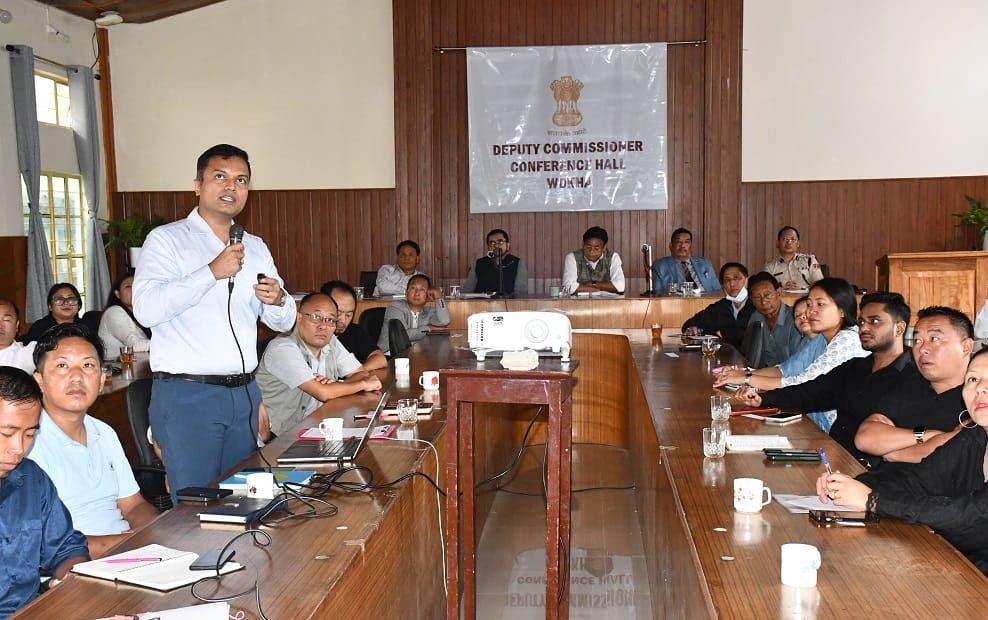A presentation underway during the monthly meeting of the Wokha DPDB on July 19. (DIPR Photo)


WOKHA, JULY 20 (MExN): Wild elephant are reportedly present in over 100 villages under Wokha district with 60 villages officially identified as ‘active conflict zones’.
Chairing the District Planning and Development Board (DPDB) meeting on July 19, Commissioner and Boar’s Vice Chairman, Vineet Kumar note of alarming data presented by the Forest Department, Wokha as growing threat of elephant-human conflict dominated discussions.
As per the State DIPR, the figure is based on surveys conducted by the Wildlife Institute of India (WII) across 126 villages, highlighted widespread crop destruction, particularly affecting rice, areca nuts, taro, and rubber plantations.
To address the escalating issue, the Forest Department informed the board that plans are underway to establish a dedicated Human-Elephant Conflict Control Room in Wokha to monitor incidents in real time and coordinate rapid response measures.
The department also called for greater community engagement and inter-departmental coordination to mitigate the situation.
Advisor for Agriculture, Mhathung Yanthan, who attended the meeting along with MLA Mhonbemo Humtsoe, stressed the need for long-term ecological and livelihood strategies that integrate wildlife management with development planning.
“We must align our local actions with the larger vision of Viksit@Wokha2047, inspired by Viksit Bharat@2047,” he said, while urging departments to formulate sustainable proposals tied to the Sustainable Development Goals (SDGs).
While the elephant-human conflict took centre stage, the Forest Department also shared updates on Amur Falcon conservation efforts and the ongoing Japan International Cooperation Agency (JICA) project, which currently covers 20 villages in the district.
These initiatives focus on habitat protection, awareness generation, and biodiversity management.
In addition, the department outlined progress in nursery development and afforestation activities under the Nagar Van Yojana and other greening schemes aimed at eco-restoration and climate resilience.
Advisor Yanthan underscored the importance of improving Wokha's performance in the recently released North Eastern Region District SDG Index (2023-24), stating that targeted interventions in both environmental and socio-economic areas were necessary to raise the district’s ranking in future assessments.
The meeting closed with a call for integrated planning and grassroots-level implementation to ensure sustainable development while safeguarding both livelihoods and local biodiversity.






